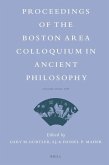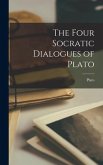"We tend to associate the term 'Epicurean' with the enjoyment of fine food and wine. But these things are a world away from the vision of a simple but pleasurable life conceived by Epicurus and his followers, who were primarily concerned with mental pleasure and with avoiding pain. Their goal, in short, was a life of tranquility. In a charming essay of 15,000 words, Sellars walks us through the history of Epicureanism. We explore a constructive way of thinking about the pleasures of friendship, our place in the world, and, perhaps most importantly, the meaning of death and why we should not fear it. The Pocket Epicurean draws on ancient wisdom in a way that feels relevant today, offering a wise way of thinking about what truly matters in our lives. It will be an excellent companion to The Pocket Stoic: both titles will appeal to contemporary readers who are looking for intelligent self-help and practical philosophical reflections on how to live a good life"--








